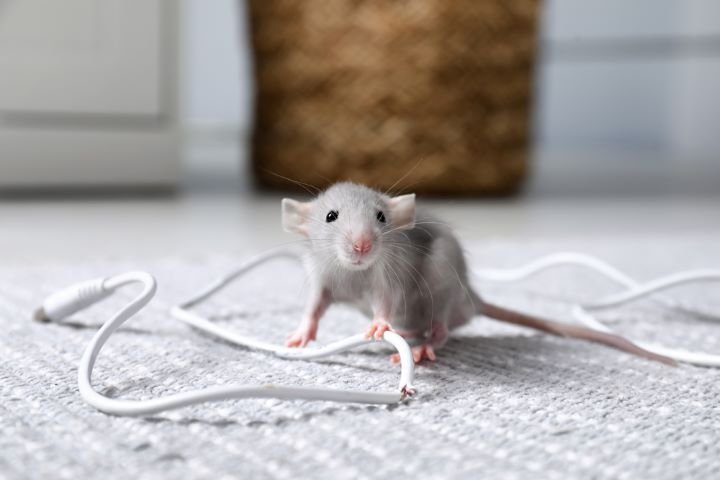In todays world, where the preference for natural solutions is increasingly common, utilizing essential oils for pest control has piqued the interest of many homeowners. Essential oils provide an eco-conscious choice that not only helps deter pests but also infuses our environments with delightful fragrances.

The Basics: What Are Essential Oils?
Essential oils are potent liquids derived from plants, encapsulating their unique scents and flavors, or 'essence.' Renowned for their aromatic qualities, these oils are frequently incorporated into aromatherapy, skincare, and cleaning products.
They offer numerous advantages beyond just pest deterrence, such as enhancing your mood and purifying the air. To explore how to effectively use essential oils for pest prevention, check out this insightful article on Southern Living.
Why Choose Essential Oils over Conventional Pesticides?
Traditional pest control methods often depend on harmful chemicals that can be detrimental to both humans and pets, as well as the environment. Conversely, essential oils present a natural and safe alternative for repelling pests. For example, peppermint oil is particularly effective in keeping spiders at bay, while citronella naturally deters mosquitoes.
These oils not only help in pest avoidance but also contribute to a fresh ambiance at home. They are especially appreciated for their safety when used around children and pets. For additional pest control tips, visit WebMD.
How Essential Oils Work Against Pests
The effectiveness of using essential oils for pest prevention is rooted in their chemical compositions. Many pests find the potent aromas of these oils unwelcoming and struggle to tolerate them. The oils disrupt pests scent trails, which hinders their ability to navigate and communicate with one another about food sources.
Popular Essential Oils for Pest Control
Here are a few essential oils known for their pest-repelling qualities:
- Peppermint Oil: Effective against ants, spiders, and mosquitoes.
- Lavender Oil: Deters moths, fleas, and flies.
- Eucalyptus Oil: Repels ticks and fleas.
- Lemon Oil: Helpful against cockroaches and flies.
With such a variety of options, it's easy for homeowners to incorporate essential oils for pest prevention and tailor their pest management strategies to meet individual needs. For further insights on pest prevention methods, visit Smart Pest Systems.
Creating Your Essential Oil Pest-Repellent
Making a DIY essential oil pest repellent is straightforward and budget-friendly. Begin by mixing 10 to 15 drops of your chosen essential oil with water in a spray bottle. Shake it well before spraying around possible entryways, corners, or nests where pests may be lurking. For more detailed DIY pest control methods, you can follow this comprehensive guide.
Limitations and Considerations
While essential oils significantly assist in pest prevention, its crucial to recognize their limitations. They may not be suitable for severe infestations or larger pests. When such situations arise, consulting professional pest control services is advisable. Additionally, when applying essential oils, use them sparingly to avoid overpowering scents in your living space.
It's also beneficial to research specific oil interactions with various pests and humans. Understanding correct usage can help prevent potential allergic reactions or staining. For more insights on the correct application of essential oils, feel free to check out our guide.
Conclusion
Incorporating essential oils for pest prevention into your routine might offer a natural, fragrant, and safer approach to pest control. Despite their limitations, this method provides an easy and environmentally conscious solution for everyday pest problems. Embrace the fragrant benefits of essential oils and work towards a pest-free home.

FAQ
- Can essential oils completely replace chemical pest control? While essential oils can ward off numerous pests, significant infestations often necessitate professional chemical treatments. Essential oils are most effective for preventing minor pest issues.
- Are essential oils safe for pets? Some essential oils can pose risks to pets if not used appropriately. Always research individual oils and consult a veterinarian if needed.
- How often should I apply essential oil solutions? Regular reapplication, such as weekly or bi-weekly, is recommended to maintain efficacy due to the volatile nature of essential oils.
This article contains affiliate links. We may earn a commission at no extra cost to you.
